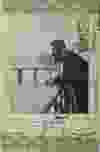David Matlow’s fascination with Theodor Herzl began with seeing a portrait of the founder of Zionism in his grandparents’ living room in Ramat Gan, Israel.
Archie and Goldie Matlow had lived Herzl’s dream, moving there from Toronto in 1954, and young David found himself fascinated by the bearded, determined-looking man in the picture. After his grandmother died in 1991, David asked for the portrait — but he didn’t stop there.
The Toronto corporate lawyer has since acquired 6,000 more items of Herzl memorabilia, assembling them into the world’s largest Theodor Herzl collection — and an exhibition that has toured the United States and Canada for 15 years.
The “All About Herzl” exhibition currently running at the Bernard Museum at New York’s Temple Emanu-El is about more than just the history of the father of modern, political Zionism — It’s about a hero who fought for the Jewish community, a role model who strived for social justice, and a visionary who believed in a better future for everyone, says Matlow, law partner at Goodmans LLP in Toronto and immediate past chair of the Jewish Foundation of Greater Toronto.
“What inspires me to do this is because Herzl had an idea and made it happen. He saw a problem and he worked to solve it.”
An Austro-Hungarian lawyer, journalist, playwright and political activist, Herzl fought against antisemitism and for a better future for the Jewish community the last eight years of his life. He died in 1904 at age 44.

He believed there was no way to solve antisemitism except through the international establishment of a Jewish state.
“Yes, he was the visionary of what became the state of Israel, but his message is universal,” Matlow says. “We are not settled with the conditions in which we find ourselves today.
“We can imagine and envision a better future. And, if we work towards it, we can make it happen.”
While the idea of a Jewish state seems logical to us now “because the state of Israel, which Herzl envisioned, exists today,” many thought he was crazy back in 1896 when he came up with the idea, Matlow says.
“He set out to convince people that his plan was possible. Items, books and photographs are what helped rally people behind his plans” — all of which are featured in the New York City exhibition.
“He wrote books, held international congresses. And, knowing that he needed to rally people behind a symbol, he became that symbol.”
Matlow talks of the Herzl School of Excellence in the Chicago neighbourhood of North Lawndale, a public elementary school named after Herzl in 1915. After its dense Jewish community dispersed over the years, the town and school’s demographic naturally changed, becoming a community that is now predominantly Black and Hispanic.

The teachers still teach its scholars about Herzl. They encourage students to be inspired by Herzl, for him to be “a role model for them in the pursuit of social justice, and the possibility that life can be better,” Matlow, who publicly speaks at the school, explains. “And in fact, this has brought the Jewish community of Chicago and this community together.”
“All people share many things in common,” he says. “And we spend a lot of time focusing on our differences, rather than the things that we have in common.”
Herzl’s vision went beyond the Jewish community, envisioning shorter work days, free medical care, free university education, and freedom of the press.
“These are very progressive thoughts,” Matlow says. “Everyone was equal. He really thought through what this country should look like.”
“And that’s Zionism.”
The “All About Herzl” exhibition is Matlow’s largest and most notable — though it is one of several. Matlow showcases his Herzl memorabilia through an ongoing travelling exhibition that has so far been in Los Angeles, Chicago, Minnesota, Miami, and Las Vegas since April 2023. Matlow has brought exhibitions to synagogues and Jewish community centres in Toronto, Ottawa, Calgary and Edmonton. He also showcases his memorabilia in a carry-on pop-up exhibition.
Matlow’s “The Herzl Project” is about a lot more than just showcasing Herzl memorabilia. He strives to tell the story of Herzl in many different mediums. In 2013, Matlow produced “My Herzl,” a 52-minute documentary on Herzl’s unique leadership featured at the Vancouver Jewish Film Festival. He has a weekly column for the Canadian Jewish News, and speaks at schools and Jewish community centres.
“We’re all faced with problems in our lives — big ones, little ones — and some people have told me that they remember my talks and thought ‘what would Herzl do,’ ” Matlow says. “And, what he would do was not take the easy way out, but to actually do something.”

Herzl’s famous motto was “if you will it, it is no dream.” And, while his dream was fulfilled, Matlow believes it is not yet completed. Hamas’s murderous attack on Israel and the war in Gaza that followed has amplified antizionist voices that Matlow argues misunderstand Zionism.
“At this particular time, there is great conflict, misunderstanding, and purposeful misdescription of what Zionism is, ” he says. “It’s important now more than ever to know what Zionism is, to correct misconceptions, and to remind people who once knew or to teach people who never knew what Zionism really means.”
The exhibition, set to close on Jan. 24, is located between New York’s 5th Ave. and 56th St., right across from Central Park. “It’s in the middle of everywhere,” Matlow says.
“There is more memorabilia about Herzl than any other person in Jewish history,” Matlow says. “Herzl is a role model for the ability to make things better in a dignifying and inspiring way.”
Our website is the place for the latest breaking news, exclusive scoops, longreads and provocative commentary. Please bookmark nationalpost.com and sign up for our newsletters here.